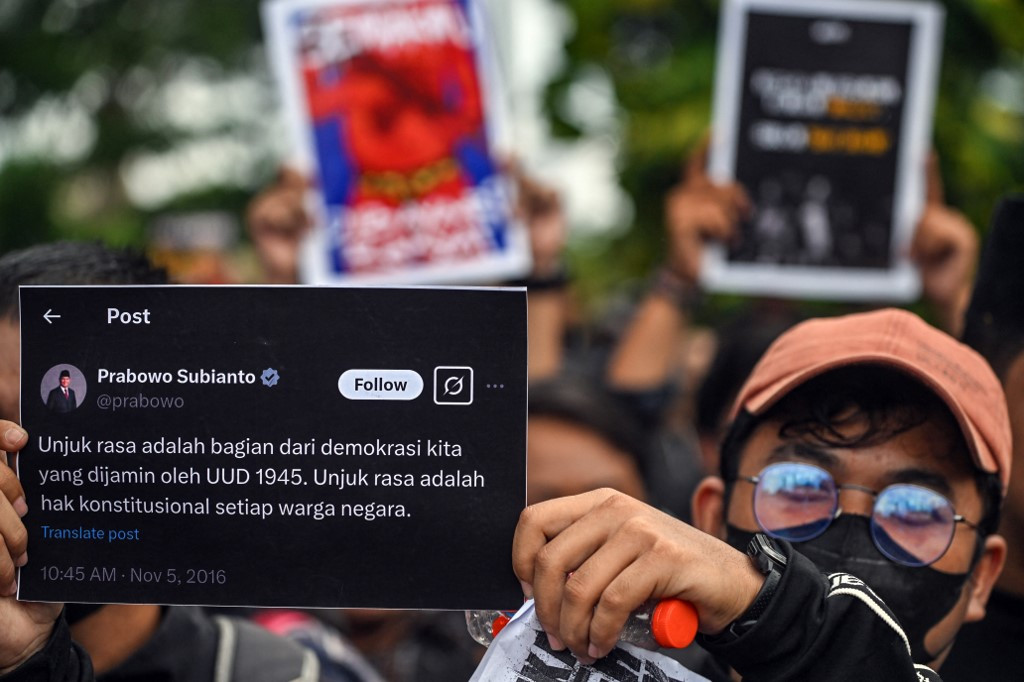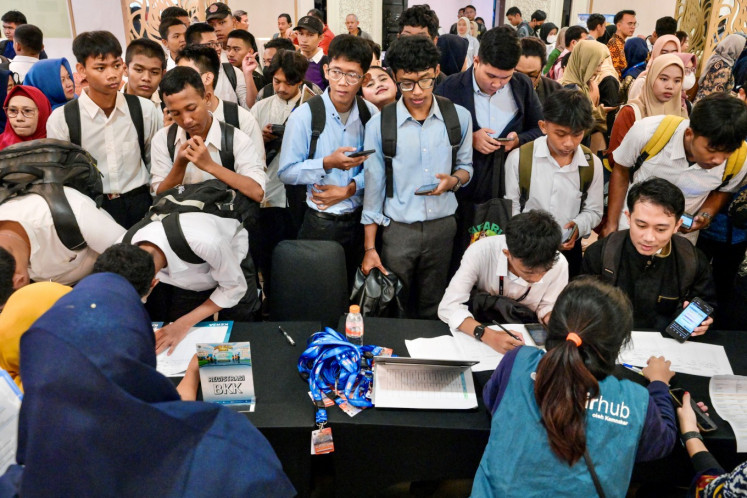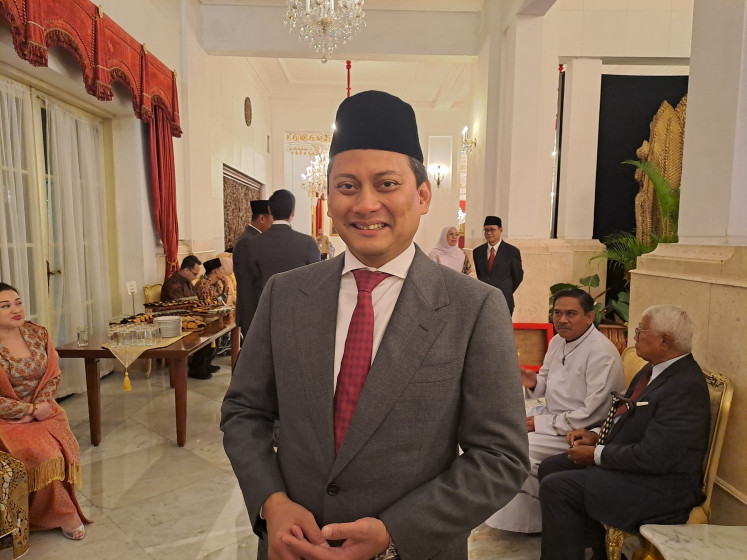Popular Reads
Top Results
Can't find what you're looking for?
View all search resultsPopular Reads
Top Results
Can't find what you're looking for?
View all search resultsAI governance: Harnessing potential without losing control
Democratization through AI may be inevitable, but it could still be interesting to observe how one-party regimes may evolve and open up space for participation in political spaces through AI.
Change text size
Gift Premium Articles
to Anyone
P
olitical systems globally are at a crossroads, facing immense challenges from climate change, environmental degradation and the dual nature of artificial intelligence.
While AI can be a powerful force for good, it also presents a potential threat, leading to what AI pioneer Stuart Russell termed the "gorilla problem”, a scenario where humans could become subordinate to a more intelligent and non-human entity.
A critical debate is unfolding within academia about whether AI can strengthen democracy. These discussions explore how AI could foster citizen participation or solidify authoritarian rule.
On the one hand, AI could make governance more inclusive and transparent. On the other, it could lead to mass unemployment or give one-party states an unprecedented level of control through surveillance. These scenarios are not black and white, but highlight the need for a nuanced approach to AI governance.
These are immense challenges for both democratic and authoritarian states. No political system is “bulletproof” in tackling these issues alone.
Amid geopolitical rivalries and climate and environmental challenges, the rise of unregulated AI could turbocharge tensions that can lead the world toward increased conflict.
The lack of cooperation on regulating AI is particularly concerning. Over the last few years, the United Nations has done important work in proposing the Global Digital Compact. The UN has also released the Governing AI for Humanity report, a realistic blueprint for regulating AI.
However, neither are radical enough. As everything at the UN, they are compromises. UNESCO’s work on developing ethical standards for AI is still important in starting the conversation.
Besides some symbolic voluntary frameworks, not much is happening in terms of regulating AI. Symbolic frameworks include the European Union’s AI Act, the lighter AI Framework Act from South Korea or laws in the United States.
While we focus on putting safeguards and guardrails on AI’s development, such as China’s proposed AI Global Body, other less visible conversations are underway, mostly in academia.
While related to AI regulation, this topic is uniquely positioned to help us understand the future survival of humanity. It is also crucial because it aims to answer whether AI can strengthen and reinforce democratic practices, or erode authoritarian foundations.
Democratization through AI may be inevitable, but it could be interesting to observe how one-party regimes could evolve and open up space for participation in political spaces through AI.
The opposite may also unfold. Democracies could crumble from mass unemployment if corporations lay off millions due to AI-driven automation that does not augment human skills but replaces them.
One-party regimes may thrive if AI provides them an unprecedented level of control over their citizens. These scenarios are perhaps too simplistic and both should be taken with some caution.
In terms of outcomes in AI regulation, the scenarios might not be so black and white. No matter the development of more and more powerful AI, humans will be in charge.
I wanted to know more from those who study democratic innovations and are focused on ways to promote bottom-up deliberative practices.
My conversations with scholars from the Participedia School 2025 on Digital Democracy held last month in Tsinghua University in Beijing and the International University of Japan in Minami Uonuma, Japan, revealed cautious optimism for AI.
They emphasized that adapting hybrid systems are essential skills to harness AI for the democratic good.
Ming Zhuang, the founder of the Participation Center in Chengdu, and a researcher at the local Academy of Social Sciences in China, said that digital tools are being used to enhance governance by integrating deliberative processes into platforms for large-scale public input. He highlighted how machine learning can analyze vast amounts of citizen feedback to find common ground.
Francesco Veri, a senior researcher at the Centre for Democracy Studies in Switzerland, explained that digital governance is rapidly evolving, with AI large language models acting as a tool to "outsource cognitive tasks" and enhance democratic dialogues.
Katy Tabero, from the University of Southampton, the United Kingdom, said that we are at a pivotal moment and need to critically assess AI's impact on democratic engagement. She called for tools to be actively designed to ensure positive outcomes for democracy, rather than simply accepting what commercial entities provide.
Matt Ryan, a professor also at the University of Southampton, warned against using AI for short-term gains that cause long-term harm, such as encouraging lazy or ignorant behavior. He emphasized that AI is a tool with powerful potential, and it is crucial for "democrats to engage, understand and develop it for good”.
The journey to understand how AI can support and enhance democracy is both fascinating and complex. This raises fundamental questions that require careful consideration. Will governments be proactive in using AI to facilitate citizens' participation? Can AI-supported decision-making processes address the public frustration and anger seen on the streets?
The success of AI depends on whether the consolidation of power is accompanied by accountability and transparency. If not, technology intended to be a solution could become a new source of problems.
***
The author is a freelance writer who focuses on human rights, democracy and regional integration in the Asia-Pacific.











